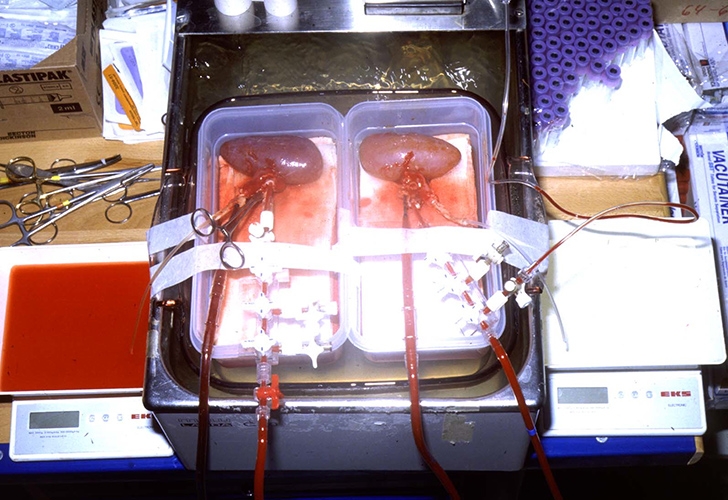2017-10-10
2016-11-08
Coordinated by Tom Eirik Mollnes (partner 4), in collaboration with partners 1, 3, 4, 5, 6, 7, 9
Within WP6 molecular regulators of thrombo-inflammation, developed and biochemically characterized in WP3, WP4 and WP5, will be evaluated in 1) an endothelial cell based whole blood model and 2) an ex vivo porcine model of kidney ischemia/reperfusion injury.
The endothelial cell based model, which is run in close collaboration with partner 1 at Uppsala University (Peetra Magnusson), will be used to evaluate a large set of regulators. Endothelial cells will be exposed to different stimuli that resemble vascular stress significant in kidney transplantation. This includes episodes of hypoxia/reoxygenation to mimic vascular ischemia/reperfusion, and incubations with incompatible blood to simulate endothelial stress in ABO-incompatibility transplantation or xenotransplanation. The efficacy of the different regulators to prevent thrombo-inflammatory reactions will be evaluated by measuring endothelial cell activation and fluid phase inflammatory markers.
The ex vivo porcine model is based on isolated pig kidneys that are perfused ex vivo with candidate regulators, one kidney perfused with the regulator and the other one with a relevant control (Figure 1). To solely study ischemic stress, kidneys are isolated and stored on slashed ice for up to 24 hours. This is extended in a reperfusion setting where the ischemic episode is followed by perfusion with ABO-matched blood. Readouts include measurements of inflammatory mediators in tissue homogenates and evaluation of histopathology.
The objective of these models is to select key candidates to proceed with in the in vivo porcine renal transplantation model. The main collaborator in the porcine models is partner 3 at SLU (Marianne Jensen Waern).
